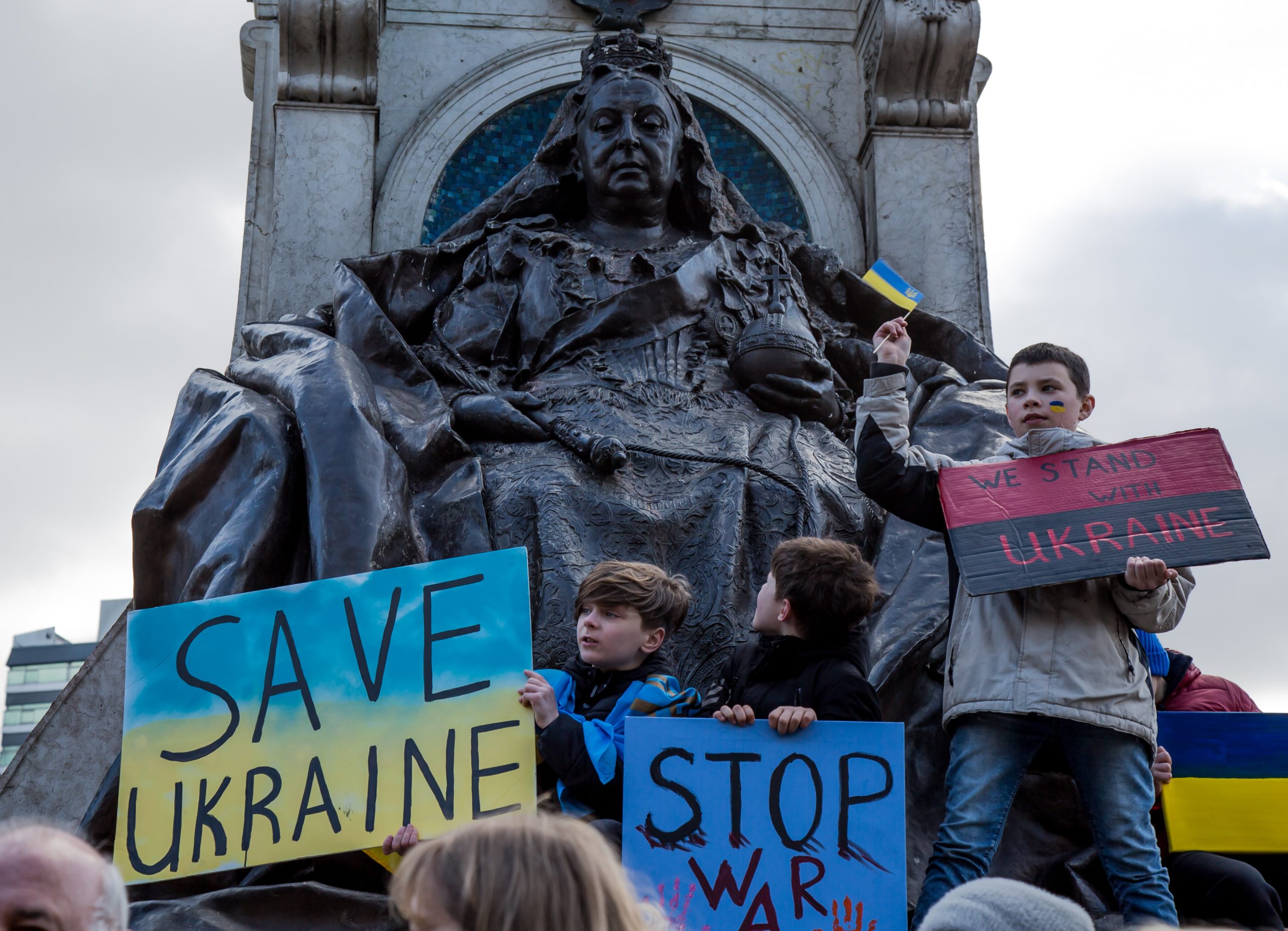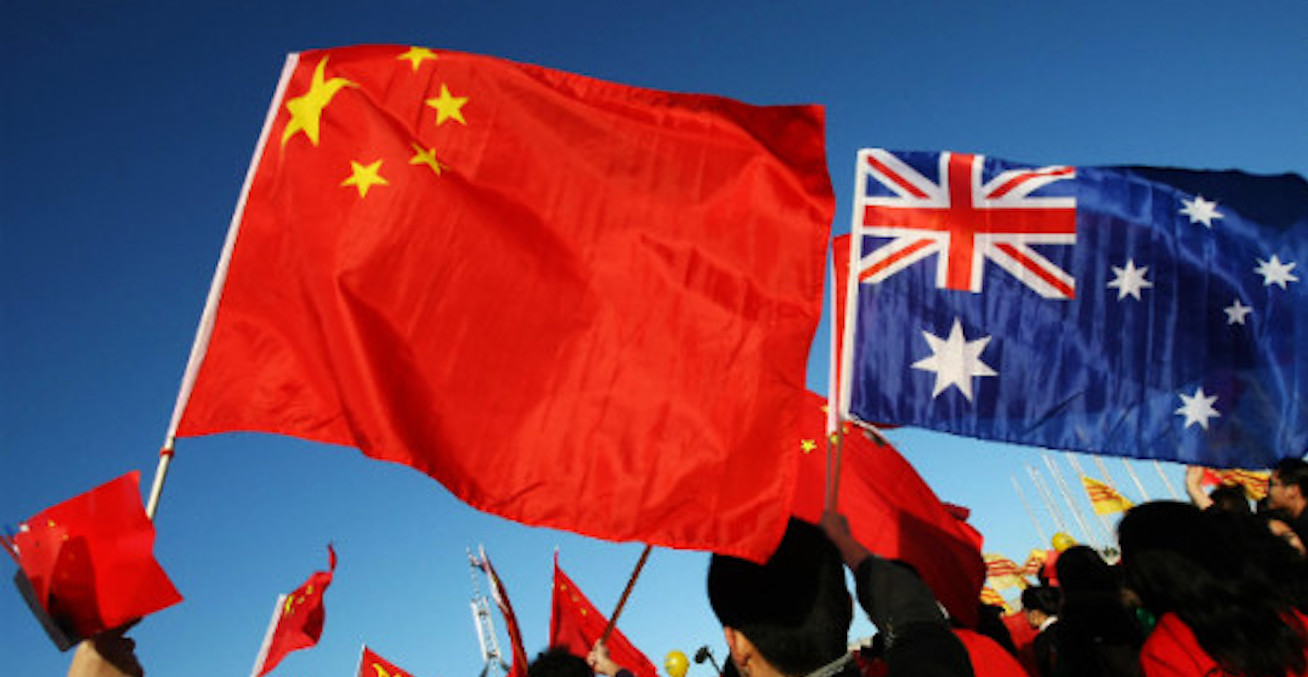Ukraine should be wary about accepting Chinese offers to fund post-war reconstruction of the country.
On February 24th, the first anniversary of Russia’s invasion of Ukraine, Beijing announced a 12-point plan that it said could solve the conflict. One of those points was to promote a post-conflict reconstruction of Ukraine in which China would assume a constructive role. Because Beijing now has a more authoritative position in its relations with Moscow, Kyiv must prepare for the possibility that China also wants to exercise its self-interested agenda in Ukraine, particularly once the war is over.
Although China’s 12-point plan included the resumption of peace talks and protecting nuclear power plants, it was criticized by the European Union as being built upon misguided security assumptions. The EU’s criticisms were mainly directed at the so-called “Cold War mentality” that Beijing often takes when launching geopolitical jabs at Washington, as well as for obscuring of the roles of victim and aggressor in this conflict, particularly its avoidance of words such as “war” or “invasion” and, instead, its preference for referring to Russia’s invasion of Ukraine as the “Ukraine crisis”. This may have been China’s attempt to broker peace between Russia and Ukraine, but it has been met with skepticism by the United States and Europe.
This, of course, is not necessarily a surprise. After all, Beijing has never even pretended that its declared “neutrality” in the ongoing conflict does not favor Moscow, especially as Chinese President Xi Jinping has purposely shunned Ukrainian President Volodymyr Zelensky’s diplomatic outreach ever since this war started. (The first phone call between the two took place in late April this year).
Moscow’s Current Dynamic as Beijing’s Junior Partner
After the People’s Republic of China (PRC) was established in 1949, it immediately established diplomatic ties with the Soviet Union. Their relations were burgeoning in the early 1950s but an ideological rift ensued after Nikita Khrushchev became the ruler of the Soviet Union. The Sino-Soviet split peaked with a military clash in 1969. It was not until the late 1980s that the two Communist powers reconciled their differences. Following the dissolution of the Soviet Union, the relationship between China and Russia continued to grow closer. Both became strategic partners in 1996, inked the Treaty of Good-Neighborliness and Friendly Cooperation in 2001 and established the Shanghai Cooperation Organization (the successor of the Shanghai Five established in 1996) the same year, and enjoyed improvements in economic and military cooperation over the following years. In February 2022, just weeks before Russia’s full-scale invasion of Ukraine, presidents Vladimir Putin and Xi Jinping met to declare their “no limits” partnership.
China’s stance on the Kremlin’s decision to invade Ukraine has been labeled by some commentators as “Pro-Russia Neutrality”. Not only has China avoided criticizing Russia’s actions in Ukraine while blaming the conflict on the West, it has also been unabashed in exploiting the war for its own benefit, becoming Russia’s main economic lifeline after significant sanctions were imposed on Moscow by Western countries and some of their allies following the invasion.
From Beijing’s perspective, increasing trade with Russia brings (almost) nothing but advantages. China was able to buy high-quality energy from Russia at a discount rate, replace Western imports to Russia with Chinese products, and supplant the use of the US dollar in Russia with the Chinese Yuan The latter is known as “Yuanization”. By expeditiously expanding the share of yuan in Russia’s reserves and by switching to direct ruble-yuan trade, the Kremlin has instead saddled Russia with a host of new vulnerabilities, such as making Russian exports to China much cheaper while making China’s imports to Russia much more expensive (due to Beijing’s ironclad control over its yuan-ruble exchange rate). This also means that Russia is now vulnerable to China’s political will regarding the agreement between their two central banks to exchange currencies. Furthermore, whether or not the Russian Central Bank can sell its Chinese bonds and have them converted to rubles depends on the whims of officials in Beijing. Some Russian experts have even voiced concerns over China’s newfound advantage over Russia.
The fact that Russia is becoming increasingly dependent on China is something that many Russians begrudgingly acknowledge, with China gleeful that Russia is now the “junior partner” in their current relationship. On something as important as negotiating a second Russian gas pipeline to China, there is no doubt that Moscow is now in a much weaker position than its monopsonist buyer, Beijing.
How poetically ironic it would be if Russian President Putin in his imperialistic ambition to attack Ukraine has instead created a situation that was foreshadowed by the former US National Security Advisor Zbigniew Brzeziński about what would become of Russia after the dissolution of the Soviet Union: either a “normal European country” or a colony of China. Taking Russia’s dynamics with China into account, the latter is no longer an illusion. Putin has not only dragged his country into the quagmire of a costly war, he might also have recklessly condemned Russia to extreme reliance on China for many years to come (indeed, long after the illegal war he started is over).
Anticipating China’s Moves in Rebuilding Ukraine: Four Considerations
Current China-Russia dynamics mean Beijing now has more freedom than ever to further its interests in Ukraine. In 2017, long before the full-scale invasion in February 2022, Ukraine joined China’s Belt and Road Initiative (BRI) and talks were held over a free trade deal between the two countries. This indicates that Ukraine, at that point, welcomed Chinese investment in ports, roads, and railways. In 2019, China replaced Russia as Ukraine’s top trading partner. Around the same time, Huawei, China’s networking giant, won the tender to construct a 4G network for the Kyiv subway. Before February 2022, analysts had estimated that the annual two-way trade between China and Ukraine amounted to $10-20 billion while Chinese annual investment in Ukraine amounted to $150 million, which is not significant by global comparisons but is on par with Chinese investments in many CEE countries.
However, not everything was rosy between Beijing and Kyiv. In 2009, after realizing that China was incapable of reverse engineering jet engines by its own, Beijing opted to cover this weakness by eyeing the complete ownership of a key Ukrainian jet engine firm known as Motor Sich. It was not until 2016 that China’s Skyrizon Aviation was able to hold a controlling stake in the Motor Sich firm. However, in 2018, security concerns led Ukraine to nationalize Motor Sich. Kyiv’s decision was met with derision from Beijing and, in 2021, China sued Ukraine for $4.5 billion over Kyiv’s action. Tensions between China and Ukraine also came to a head in 2021 after China threatened to limit Ukraine’s access to COVID-19 vaccines unless Kyiv dropped its support for the UN Human Rights Council’s scrutiny of human rights abuses in its Xinjiang state.
Arguably, just as Beijing has benefited by mirthfully tolerating Putin’s deluded revisionist warmongering, it stands to reason that China wants to benefit from Ukraine’s situation, considering their recent history and the country’s geopolitically strategic location. In all likelihood, there is no time more fitting for China to accomplish this than when Ukraine is under reconstruction.
According to World Bank forecasts, Ukraine’s recovery after the war will cost around $349 billion. Ukraine predicts around $750 billion. Regardless of whose estimate is proven nearer to the truth, it is logical to assume that such a gargantuan amount of money will not, and cannot, be provided by just one party, and the final point of China’s 12-point plan makes clear that Beijing does not intend to sit this one out.
In all fairness, however, Zelensky has asked for the international community’s help in Ukraine’s reconstruction. So, despite the fact that Beijing’s dealings have turned sour in Kyiv and elsewhere, it is unthinkable for China not to somehow contribute to the rebuild. Chinese officials have said that Beijing is willing to help post-war reconstruction and Zelensky has welcomed the idea. Considering the extensive damages done to Ukrainian infrastructure, and considering Chinese state-backed financing is known to move quickly despite having comparatively cheaper project costs, this wouldn’t be an odd situation. Such a grand promise from China may prove too tempting for Ukraine to decline. Regardless, there are four considerations that Kyiv must consider.
(1) Moral Consideration
According to a New York Times report in March 2022, Western intelligence reckons that China might have had some knowledge that Russia was going to invade Ukraine before the event but chose to do nothing to help Ukraine. As previously mentioned, China has supported Russia’s economy ever since the war started. Chinese state-owned companies have supplied the Russian army with a plethora of tools it needs to suppress Ukraine. According to US Secretary of State Anthony Blinken, there is also the possibility that China has provided Russia with lethal aid.
Therefore, it is difficult to argue that China’s hands are clean as far as Ukrainian casualties are concerned. It is likewise impossible to argue against the fact that Chinese assistance to Russia has been (and is still) contributing to the ongoing suffering of the Ukrainian people. The question in accepting China’s money to help rebuild Ukraine then becomes this: To help the rebuild, can Ukraine accept money from a country that has profited from Russia’s invasion?
(2) Security Consideration
In the debate on post-war reconstruction of Ukraine, Beijing has spoken about targeting the gaps that have been overlooked by other national governments or international organizations, such as rebuilding Ukraine’s telecommunication infrastructures, not a short-term investment.
Building Ukrainian infrastructures would give China a chance to perform its gap-filling in the second largest European country. Cultivating Ukraine’s reliance on Chinese technology and transport would also certainly benefit Chinese information gathering and open up possibilities for Beijing to interlope in Ukrainian affairs as the country attempts to further embrace democracy and unleash its economic potential. After all, China’s tendency to use the infrastructure it builds to exert control and dominance over other nations is not exactly a secret. In an April 2023 interview, China’s ambassador to France, Lu Shaye, even blatantly questioned the sovereignty of ex-Soviet countries. Beijing was quick to renounce his remark, but such a view being held by a top Chinese diplomat signifies that Kyiv cannot afford to let its guard down when dealing with Beijing. Some commentators in Russia have even lamented the country’s technological and economic dependencies on China. If even some officials from Beijing’s “no-limit” partner have voiced such concerns, Kyiv should be even more careful in accepting offers from China.
(3) Historical Consideration
When part of the Soviet Union, Ukraine was the location for production and storage of major subsystem components required by the Soviet-era weapon systems, such as radars, air defense networks, and electronic warfare, so that in-service Russian-designed weapon systems could be maintained, manufactured, and modernized. In the early 1990s, Russia refused to sell Russian military technologies to China, which by then had acquired many Soviet-made weapons for its People’s Liberation Army (PLA), for competitive reasons. China, nonetheless, decided to engage with the Ukrainian arms industry to modernize the Chinese military. With the assistance of Ukraine’s defense enterprises, China was able to build its own production of many subsystems similar to the ones previously mentioned. For years, prior to the February 2022 invasion, Kyiv provided Beijing with critical military technology that China was unable to procure anywhere else, including China’s first aircraft carrier (the Liaoning) and advanced jet engines. When China was in need, Ukraine was willing to do business.
The same cannot be said of China’s actions nowadays, when Ukraine is in need. As well as President Xi’s “Pro-Russia Neutrality” and China’s profiting off of Russia, Beijing has repeatedly refused to even condemn Moscow’s invasion. Xi has communicated with Putin many times while he has only talked to Zelensky once, at the time of writing.
(4) Financial Consideration
Chinese loans to developing countries can be problematic. Despite its status as the world’s biggest lender to governments, China has been accused of burdening developing countries with unsustainable debt and, thus, leaving them open to political pressure from Beijing. Countries that have notably been ensnared in Chinese debt problems include Pakistan, Nepal, Laos, Sri Lanka in Asia, as well as many countries in Africa, such as Nigeria, Angola, Zambia, and Kenya. In Europe, this plight was experienced firsthand by Montenegro, a candidate to become a member of the EU. Not even ex-Soviet countries are immune to being engulfed by debt problems with China, such as what happened to Tajikistan, Kyrgyzstan, and Turkmenistan. Making matters worse, as the Financial Times reported in April 2023, the fact that Beijing has agreed to cooperate on sovereign debt restructurings should indicate how troublesome Chinese debts are.
Ukraine should not dismiss potential problems related to China’s loans. Given how China has been exploiting Russia and how Ukraine already has had past concerns with borrowing money from China, Kyiv must be cautious of any future Chinese lending practices. To avoid problems, Ukraine should thoroughly study how China lends to other nations, including the ways the Chinese lenders phrase and comprehend the contents of their contracts. It would also be best to increase transparency surrounding potential loans by making the terms transparent and easily accessible to the Ukrainian public, giving it greater oversight of their country’s potential fiscal liabilities. This is even more important considering Ukraine’s continuous fight against corruption.
Ukraine’s Fight Continues Beyond This War
With the advantages China is gaining from Russia’s illegal war in Ukraine, it is easy to believe that Beijing is in no hurry to see the end of it. For Moscow, Russia’s new status as China’s junior partner is the imperialistic dream of the Kremlin backfiring. For Kyiv, as for anyone else, the end of this war remains unclear. But nothing lasts forever. Should Ukraine succeed in preventing Russian efforts to annihilate it, Ukraine then has the restoration of its lands to look forward to. For this reason, it should see that its fight for independence and existence will continue beyond the end of the current Russian invasion and must prepare itself for the future, including for a situation where Ukraine has to listen to Chinese offers of assistance.







